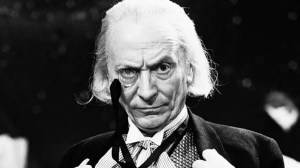There have been 16 main incarnations of the titular time-traveling adventurer in the 62-year history of Doctor Who, and they have all bid us farewell in final stories of varying success. When Doctor Who premiered back in November 1963, it was William Hartnell who played the titular Time Lord, the Doctor, an enigmatic alien who travels through time and space with human companions in the TARDIS. Time Lords have the ability to regenerate their entire form when they become ill, old, or are killed, which has allowed many actors to take on the role of the Doctor.
Videos by ComicBook.com
The Doctor’s regenerations have also defined clear eras of Doctor Who, as each new incarnation has their own distinct personality. Over the last 62 years, we have met 16 total versions of the Doctor, and subsequently said goodbye to them all, too. While some of their final adventures in the TARDIS have been very memorable, and will go down in history as some of the best episodes of TV ever, others have failed to match their success, and marked sorry departures for the Doctor. Here they are, ranked on story quality, emotional impact, and legacy.
16) Eighth Doctor — “Doctor Who” (1996)
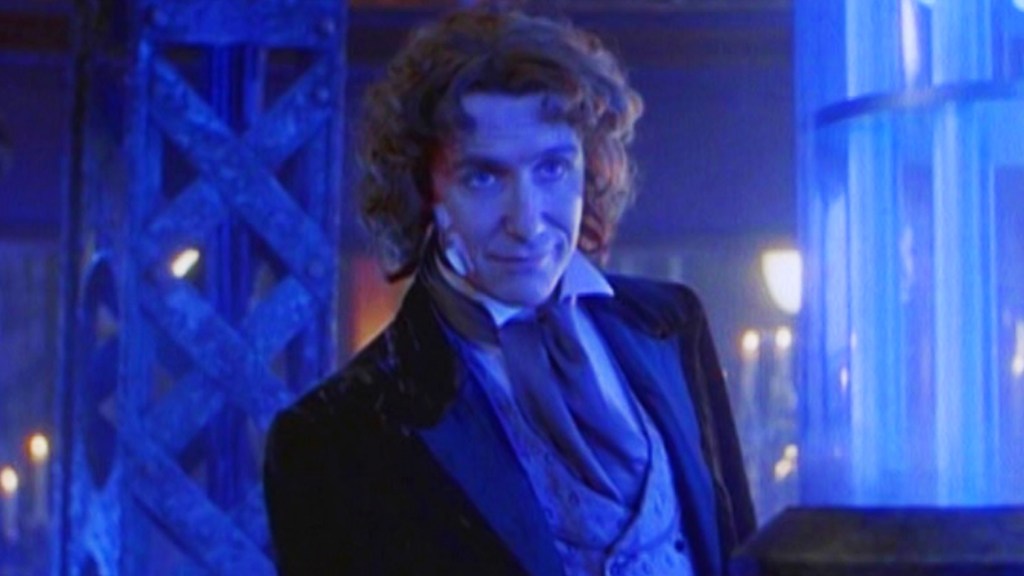
The 1996 TV movie, Doctor Who, was the only time Paul McGann’s Eighth Doctor appeared on-screen, so, while not officially his final adventure, it does count to this list. Doctor Who was a joint venture between BBC Worldwide and Universal Pictures, attempting to revive the series after its 1989 cancellation. Unfortunately, while McGann’s Doctor was charming, suave, and instantly popular, but the outlandishness and messiness of the story, the overwhelming style choices, and over-the-top performances, and more all received criticism. The Eighth Doctor’s regeneration sequence in the minisode, “The Night of the Doctor,” gave him a satisfying conclusion after a long career in audiobooks, but it’s a shame we didn’t see more of him on TV.
15) Third Doctor — “Planet of the Spiders” (1974)
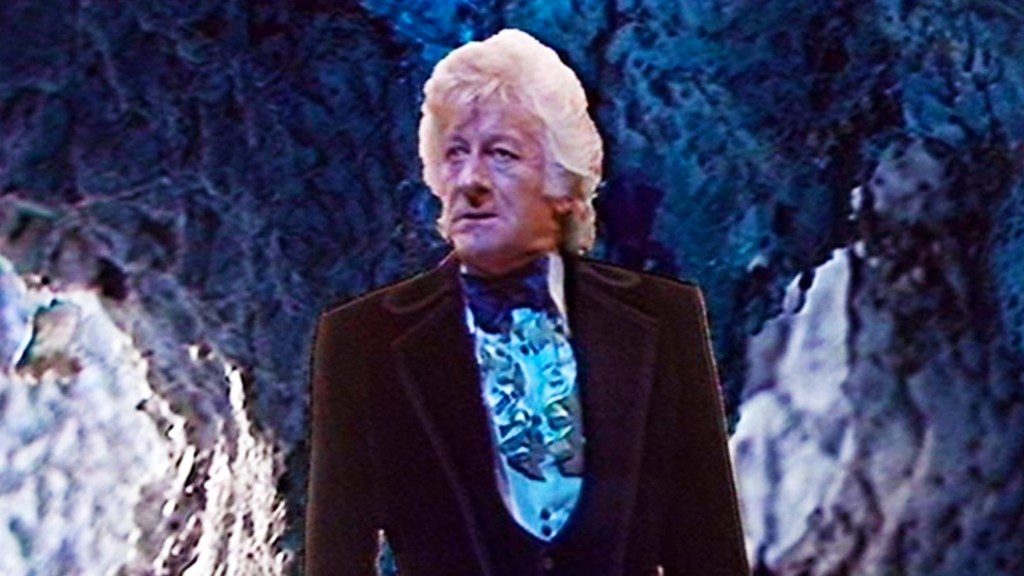
The drawn-out, six-part finale of Jon Pertwee’s era as the Third Doctor, 1974’s “Planet of the Spiders,” was packed full of unnecessary filler content, heavy-handed performances, controversial inclusion of overtly-religious themes, and poor special and visual effects. For a Doctor that had been so popular among audiences, despite being stuck on Earth for much of his tenure, it was a shame the Third Doctor had such a disappointing send-off. “Planet of the Spiders” did introduce the term “regenerate,” shaping Doctor Who for years to come, but the arrival of a race of psychic spiders in a Tibetan monastery in rural England didn’t create the final adventure that the Third Doctor deserved.
14) Fifteenth Doctor — “Wish World” & “The Reality War” (2025)
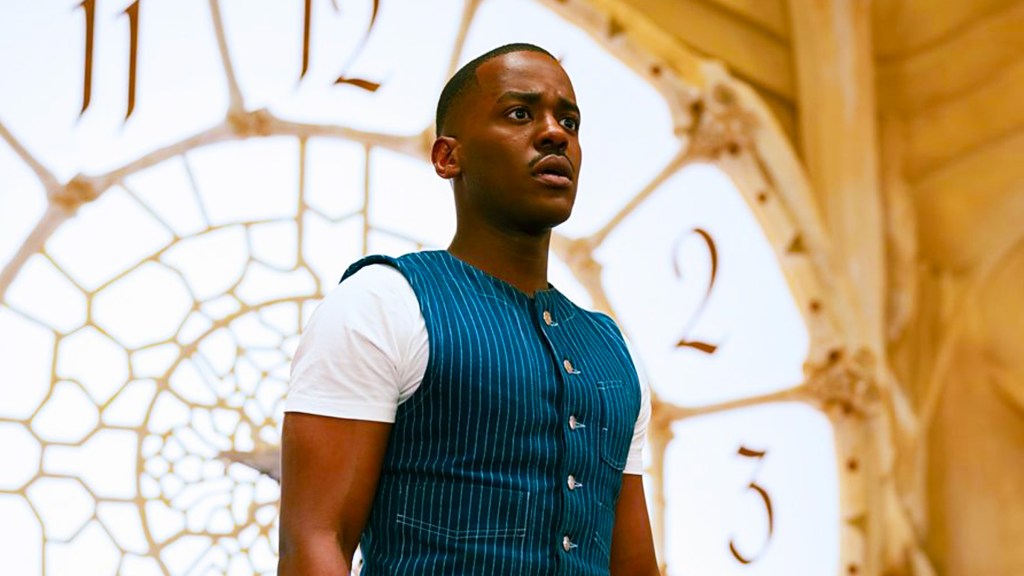
It’s a shame that Ncuti Gatwa’s final adventure as the Fifteenth Doctor — the most recent incarnation — didn’t have the impact it deserved. Gatwa was the first Black actor to portray the Doctor, marking a huge cultural milestone for the time-traveler, but his era as the Doctor was plagued with criticism and controversy. The “Wish World” and “The Reality War” two-parter was over-stuffed with content, creating a confusing and incoherent plot with many awkward moments. The return of the Rani was exciting, but Omega’s return didn’t have the same punch, as he was reduced to just a mindless CGI villain. The ending of Gatwa’s career as the Doctor, even up to his regeneration into Billie Piper, was seriously confusing and quite the disappointment, which left Doctor Who’s fate uncertain for a time.
13) Second Doctor — “The War Games” (1969)

While the ten-episode long finale of Patrick Troughton’s time as the Second Doctor may be too long for some viewers, and had serious pacing issues, underdeveloped plot points, poor production value, and lackluster performances, “The War Games’” legacy in Doctor Who history is immense. This serial introduced the Time Lords properly to Doctor Who, after the Doctor’s history as an otherworldly being had just been hinted at in previous stories. The Time Lords put the Doctor on trial, and eventually forced his regeneration and exiled him to Earth in his third form. This meant that the Second Doctor and companions Jamie McCrimmon and Zoe Heriot all got a satisfying and final conclusion, with few loose ends — it’s just a shame the actual story wasn’t stronger.
12) Fourteenth Doctor — “The Giggle” (2023)
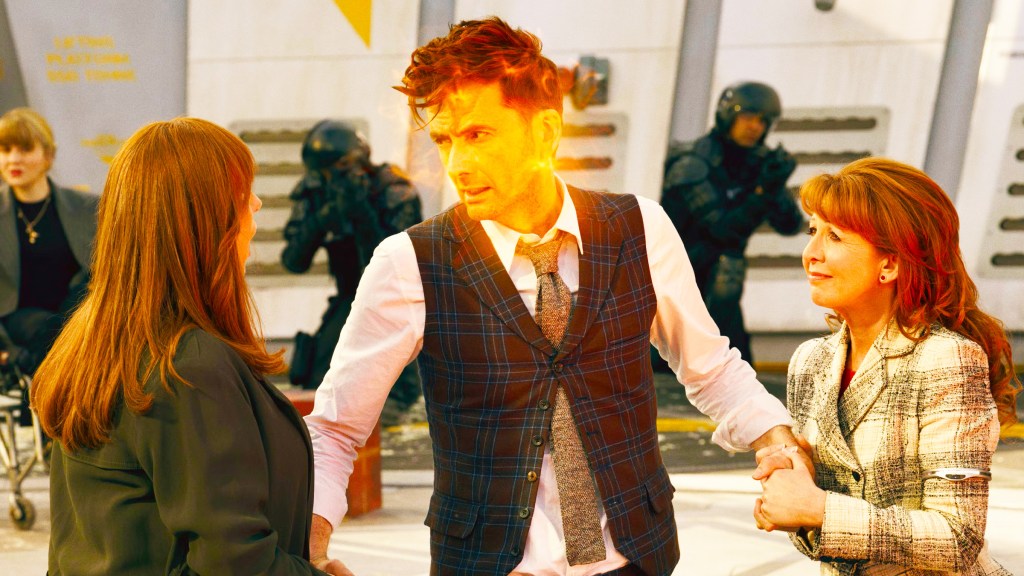
David Tennant was such an iconic Tenth Doctor, that Russell T. Davies decided to bring him back as the Fourteenth Doctor for Doctor Who’s 60th anniversary specials in 2023. Unfortunately, while these stories garnered praise for fostering nostalgia, representation, and a high production value, there were also problems. The introduction of bi-generation — allowing Tennant’s Fourteenth and Gatwa’s Fifteenth Doctors to live simultaneously — was controversial, and left the story of the former unfinished. Neil Patrick Harris was also a great addition as the Toymaker, but some criticized the idea of bringing back such a controversial villain to begin with. Some of the visual effects were also lacking, which was shocking considering this era’s higher budget.
11) Sixth Doctor — “The Ultimate Foe” (1986)

It’s Colin Baker’s performance as the Sixth Doctor in his final adventure, 1986’s “The Ultimate Foe,” the final instalment in “The Trial of a Time Lord” arc, that saves this story and pushes it so high up this list. The inclusion of an older version of the Doctor, the Valeyard, was complex and intriguing, and both Michael Jayston and Baker deliver powerhouse performances as they’re put through the Matrix that make us miss the Sixth Doctor. However, “The Ultimate Foe” gave Baker a rushed ending as the Doctor, retconned companion Peri Brown’s story unnecessarily, and had some script issues that impacted the overall pacing. We’re still bitter Baker didn’t get more time as the Sixth Doctor, especially since he gave his best performance in his final adventure.
10) Thirteenth Doctor — “The Power of the Doctor” (2022)
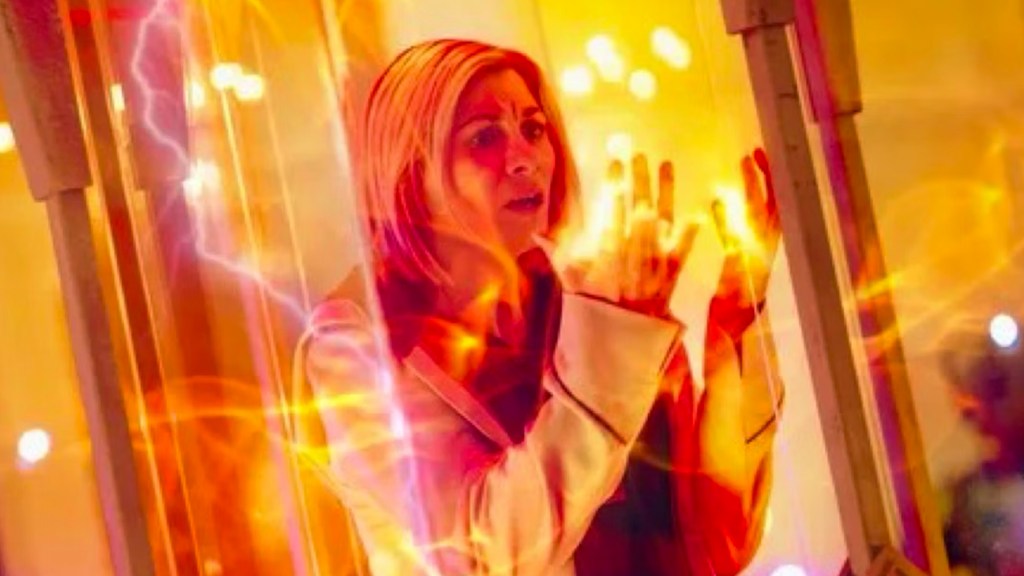
As the celebration of the BBC’s centenary, 2022’s “The Power of the Doctor” marked a strong send-off for Jodie Whittaker’s Thirteenth Doctor and managed to pay some homage to the show’s lengthy history. Sacha Dhawan’s Master was brilliant, the visual effects — especially during the final regeneration scene — were beautiful, and there were several emotional moments that made us happy to be watching. Unfortunately, the plot was a touch over-saturated, the Master’s plan didn’t really make much sense, the departures of companions Yasmin Khan and Dan Lewis (especially Dan Lewis) lacked meaning and impact, and we wanted even more stars from Doctor Who’s history to be involved, but it was still a fun finale to Jodie Whittaker’s otherwise-divisive era as the first female Doctor.
9) Seventh Doctor — “Survival” (1989)
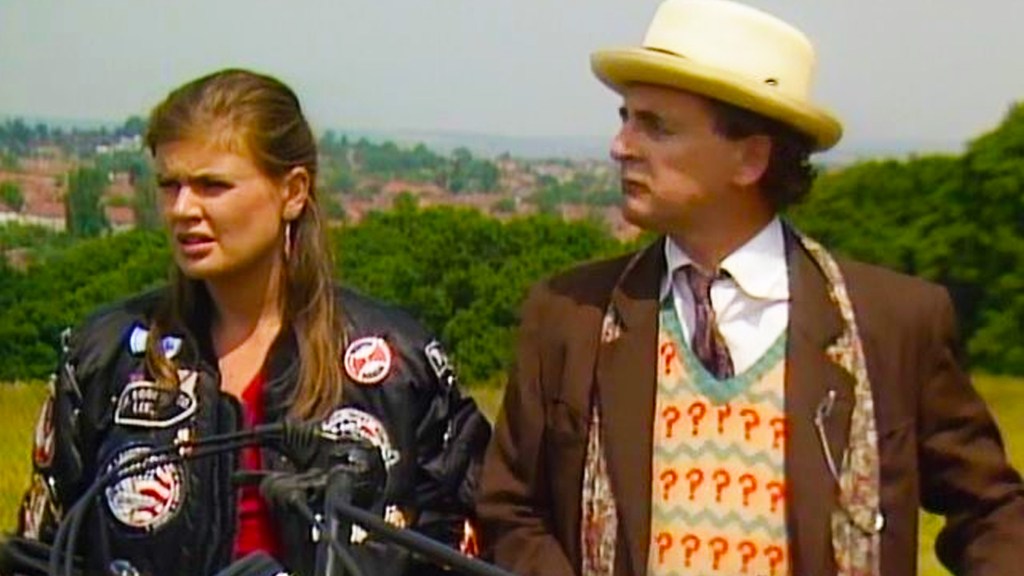
“Survival” didn’t just mark the end of Sylvester McCoy’s time as the Seventh Doctor in 1989, but also the end of Doctor Who as a whole. The series was cancelled in the ’80s, and this three-part serial was the classic era’s last adventure, and, luckily, it went out on a high. The character dynamics and focus in “Survival” were remarkable — the Doctor bond with Ace was put front-and-center, and the Master also had a great arc. The dated special effects, including the Cheetah People’s costumes, and the lack of a true finale feeling (it wasn’t intended to be), made “Survival” fall flat in some places. We finally said goodbye to McCoy’s Seventh Doctor in the 1996 TV movie, while Ace returned in “The Power of the Doctor,” proving their legacy on Doctor Who is long-lasting.
8) Ninth Doctor — “Bad Wolf” & “The Parting of the Ways” (2005)
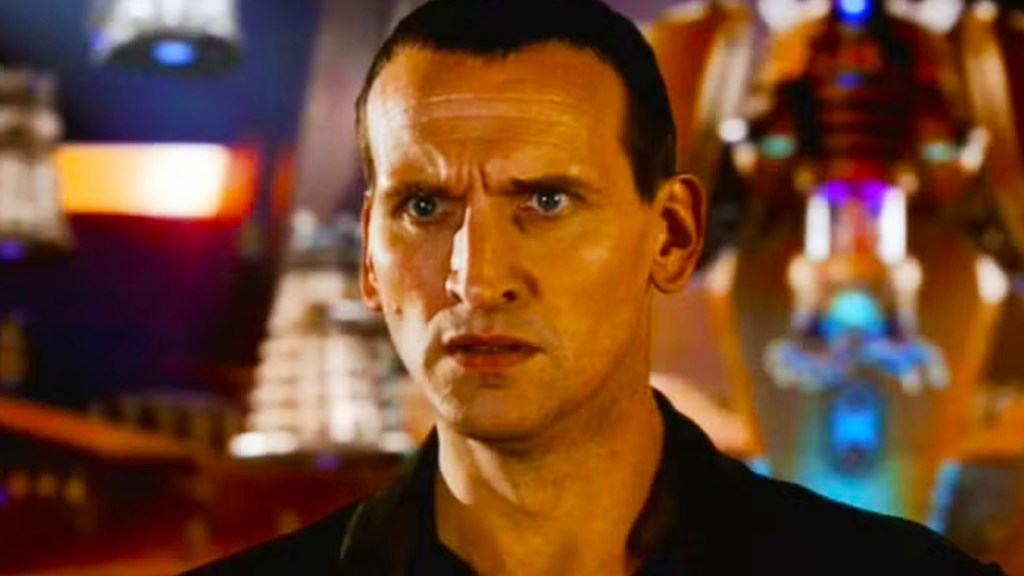
At the halfway point, we find Christopher Eccleston’s final adventure as the Ninth Doctor — the first incarnation featured in Doctor Who after the series’ revival in 2005. Eccleston did a fantastic (pun intended) job of bringing the show back and giving it a fresh injection of energy, color, ferocity, and emotional depth, and this culminated in the brilliant Doctor Who two-parter, “Bad Wolf” and “The Parting of the Ways.” This story pitted the Doctor and companions Rose Tyler and Jack Harkness against the Time Lords’ greatest enemy, the Daleks, who had rebuilt their forces after the Time War. Full of twists and turns, unexpected surprises, and moments of comedy and drama, but also with dated references, underdeveloped characters, continuity issues, and a rushed ending, this two-parter was a strong send-off for the Ninth Doctor, but not without its faults.
7) Fifth Doctor — “The Caves of Androzani” (1984)
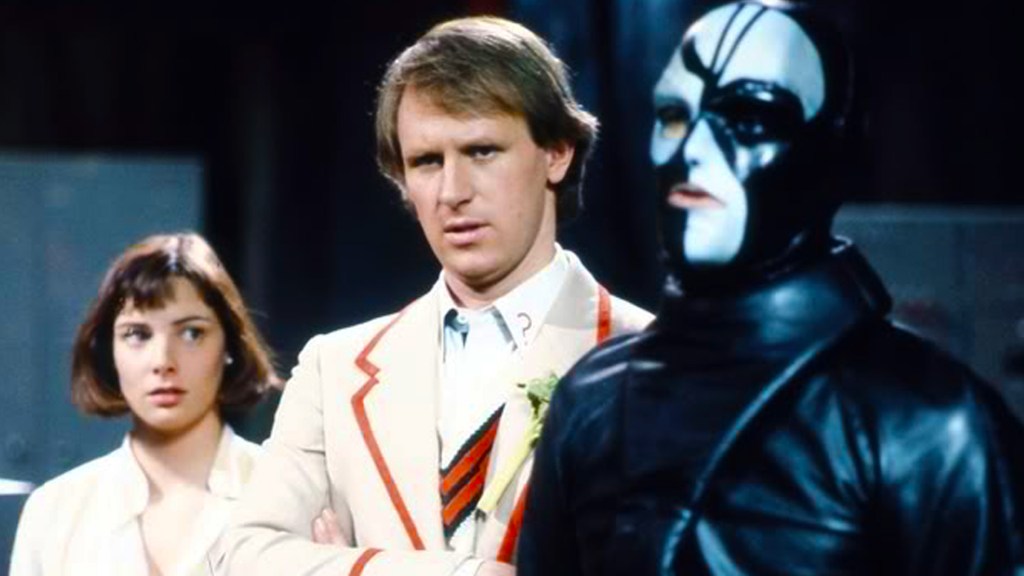
1984’s “The Caves of Androzani” brought Peter Davison’s era as the Fifth Doctor to a close with a classic Doctor Who story. The Doctor and Peri find themselves in the middle of a war between two human antagonists on Androzani Minor, fighting over a life-prolonging substance, spectrox. The substance turns out to be poisonous, which finally puts the Fifth Doctor’s celery to use, as it changes color when the Doctor is poisoned. “The Caves of Androzani” benefited from a brilliant script and fantastic performance from Davison. The regeneration was emotional and marked a turning point for Doctor Who, while the mature themes and tone were also praised. Dated today, for sure, “The Caves of Androzani” is still remembered fondly.
6) War Doctor — “The Day of the Doctor” (2013)
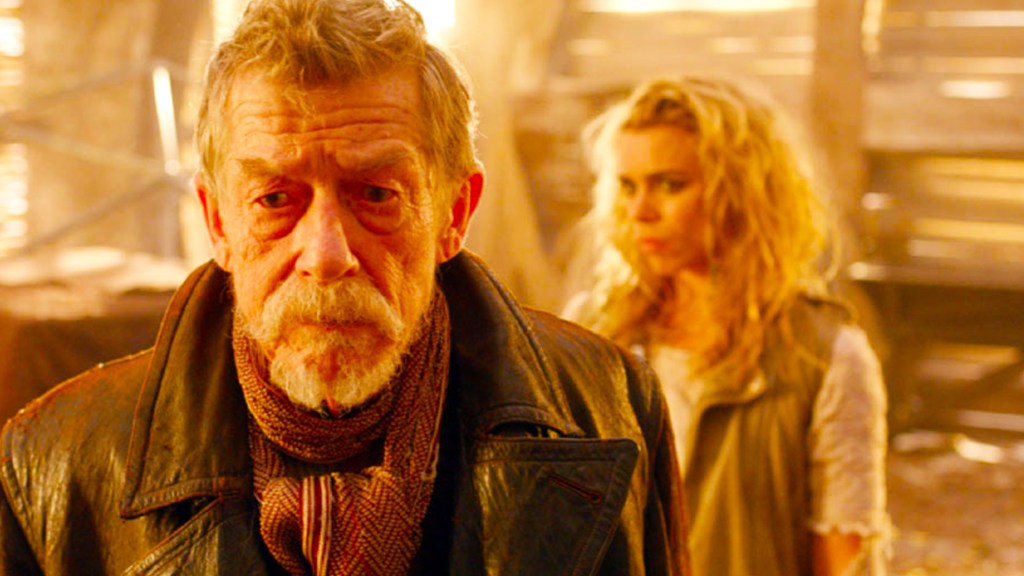
John Hurt debuted in 2013 as an incarnation of the Doctor retconned to have existed between Paul McGann’s Eighth and Christopher Eccleston’s Ninth. The War Doctor was the iteration who fought during the Time War, and eventually used the Moment to destroy Gallifrey. Hurt delivered a remarkable performance in Doctor Who’s 50th anniversary special, “The Day of the Doctor,” which also marked his regeneration into the Ninth Doctor. The limited role of the War Doctor meant we didn’t have a lot of time to get to know him, however, and it might have been more interesting to explore the Eighth Doctor’s capacity for war, rather than introducing what many considered to be the gimmick casting of the legendary John Hurt. Nevertheless, this was still a great inclusion in a strong anniversary special, so we’re not too upset about it.
5) First Doctor — “The Tenth Planet” (1966)
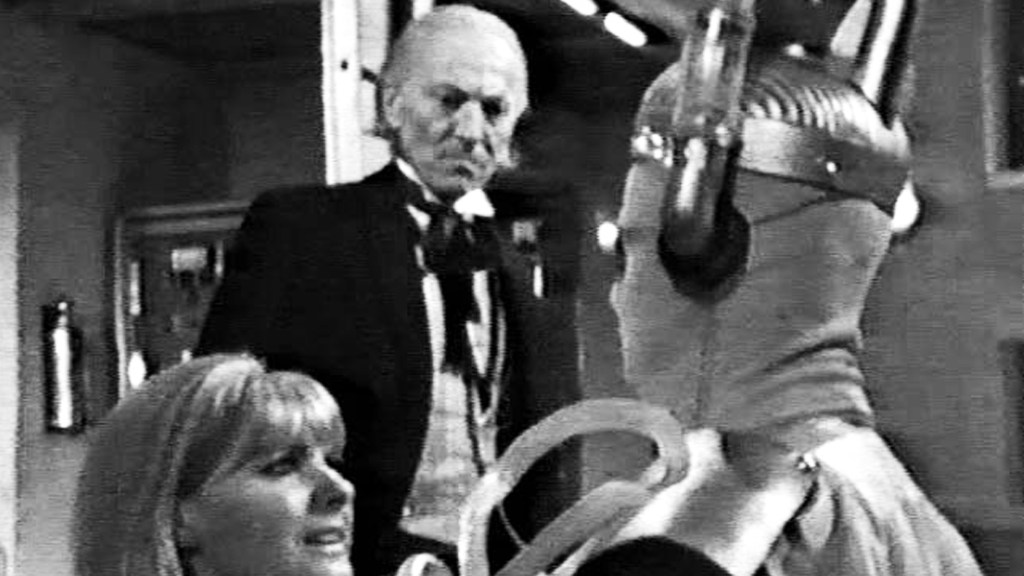
Now we’re getting into really good territory. With William Hartnell getting increasingly ill towards the end of his tenure as the First Doctor in 1966, Doctor Who creatives devised a way to exchange him for a new actor — regeneration. The Doctor first regenerated at the end of 1966’s “The Tenth Planet,” which also introduced one of the Time Lord’s most terrifying and long-running adversaries, the Cybermen. This story, which featured the destruction of Mondas, Earth’s twin planet, had a strong script, great direction, compelling characters, and marked a huge historical shift in Doctor Who with the first regeneration ever. Yes, it’s a bit slow, the science is questionable, and it’s very dated, but “The Tenth Planet” still marked a brilliant ending for Hartnell’s First Doctor.
4) Eleventh Doctor — “The Time of the Doctor” (2013)
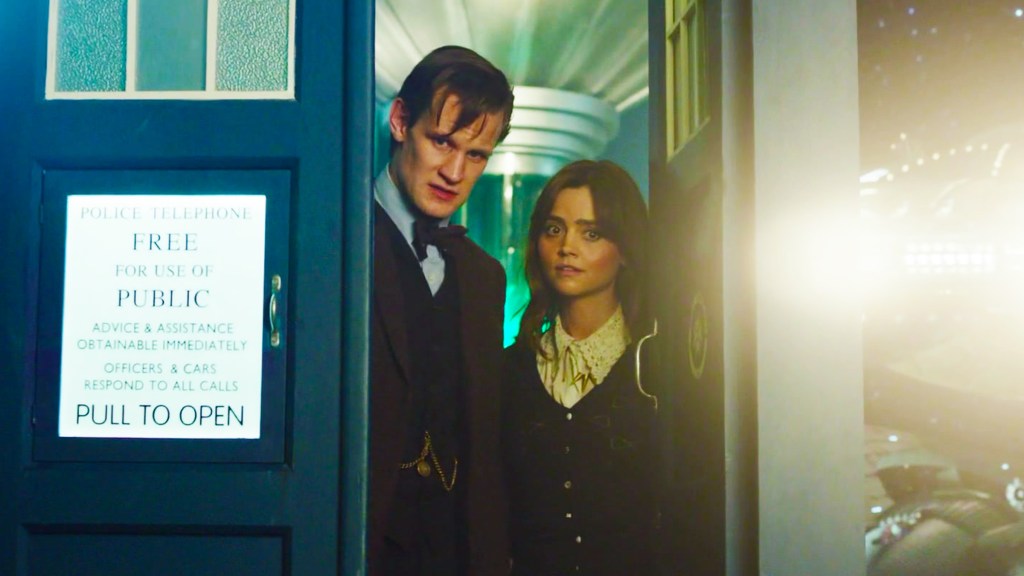
Doctor Who had a challenge to overcome in 2013 when Matt Smith’s Eleventh Doctor was facing the end of his life. The series had established that Time Lords get 12 total regenerations, and the Doctor had used his as he false-regenerated in “Journey’s End” and after the War Doctor’s introduction. 2013’s Christmas special, “The Time of the Doctor,” saw the Eleventh Doctor set up shop on Trenzalore, where many villains tried to stage attacks to finally kill the Doctor. This marked the inclusion of many classic monsters, and created a poignant ending for Matt Smith’s Doctor. Companion Clara Oswald begged the surviving Time Lords through the crack to give the Doctor more regenerations, and while this would later be retconned, as the Doctor was revealed to be the Timeless Child, this was a beautiful and emotional ending for the Eleventh Doctor.
3) Fourth Doctor — “Logopolis” (1981)
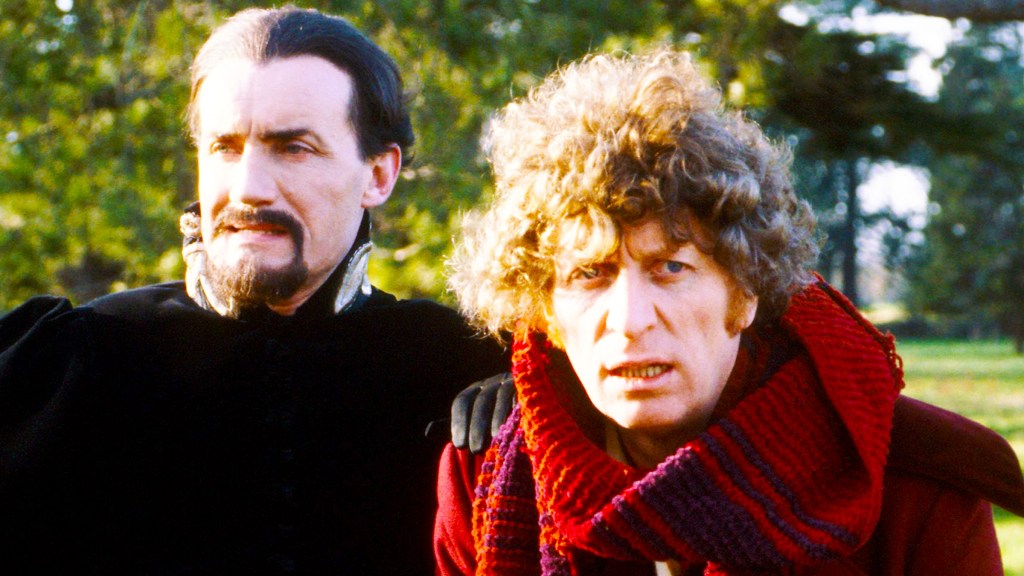
Considered one of the most iconic Doctor Who stories ever, Tom Baker’s final adventure as the Fourth Doctor in 1981’s “Logopolis” polarized audiences at the time. Baker is still the longest-serving actor to play the Doctor, and “Logopolis” teamed him up with one of his longest-running enemies, the Master, as they tried to stop the universe unraveling, which the Master had inadvertently started. The high-concept story doesn’t always work and sometimes has pacing issues, but the ambition is commendable, and the character dynamics, particularly between the Doctor, the Master, and companions Adric, Nyssa, and Tegan, are brilliant. This was a fitting and atmospheric end to Tom Baker’s tenure as the Fourth Doctor — considered to be among the best iterations of the Time Lord.
2) Twelfth Doctor — “Twice Upon a Time” (2017)
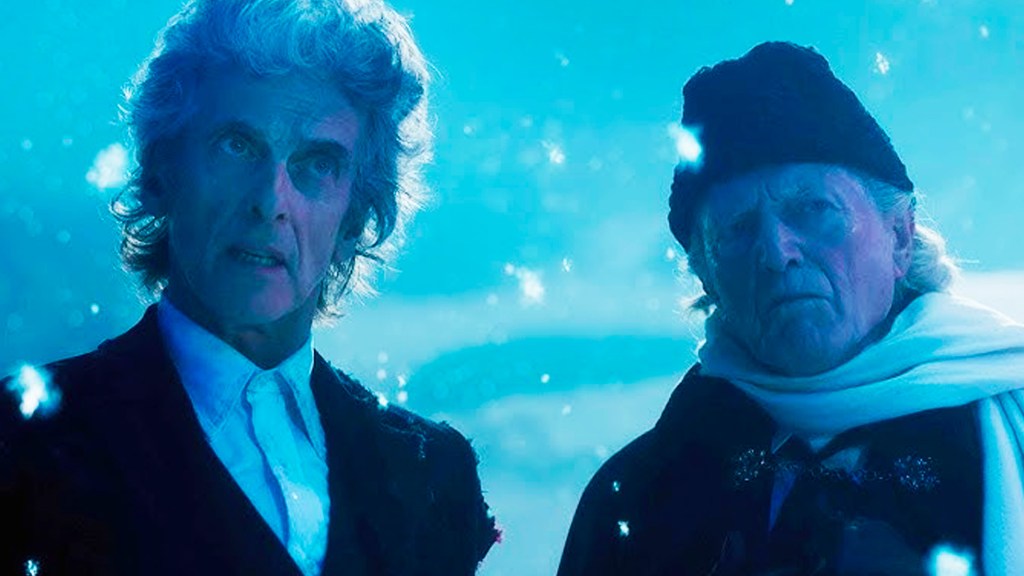
While “The Tenth Planet” was the First Doctor’s final adventure at the time, he actually embarked on another secret adventure with his future self, Peter Capaldi’s Twelfth Doctor, in 2017’s Christmas special, “Twice Upon a Time.” This episode saw the Twelfth Doctor come face-to-face with his own memories after losing Bill Potts — who tragically became a Cyberman, but was later saved by the pilot, Heather. Capaldi and new First Doctor actor David Bradley were electric together, and “Twice Upon a Time” explored a tender, emotionally powerful, visually striking, atmospheric, and grounded adventure, packed with beautiful character moments and a heartfelt script that ended Capaldi’s time as the Doctor perfectly.
1) Tenth Doctor — “The End of Time — Parts 1 and 2” (2009 & 2010)
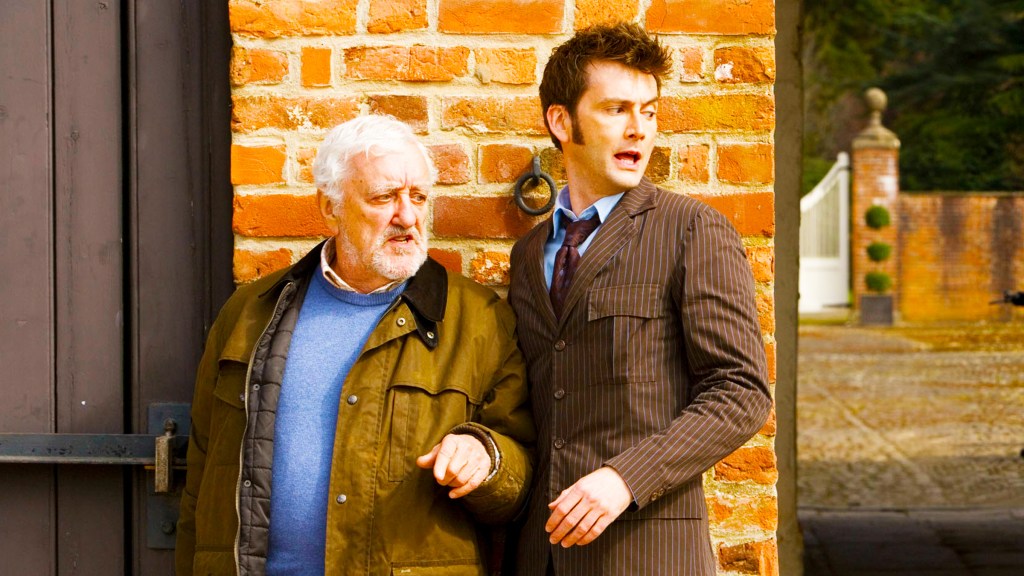
If Tom Baker played the best Doctor of the classic era, then David Tennant must assume this title for the modern era of Doctor Who. Tennant’s first stint in the show saw him play the Tenth Doctor between 2005 and 2010, and his final story, “The End of Time,” was one of the show’s most emotional, heart-breaking, intense, transformative, and thought-provoking stories in its entire 62-year history. After fighting John Simm’s Master and watching him send the twisted Time Lords and a wartorn Gallifrey back to the Time War, the Doctor sacrifices himself to save Wilfred Mott (the late and great Bernard Cribbins), proving just how big his heart is, especially when considered how terrified of regeneration he was. “The End of Time” is the pinnacle of Doctor Who, and the strongest farewell episode for a Doctor yet.
What do you think? Leave a comment below and join the conversation now in the ComicBook Forum!

